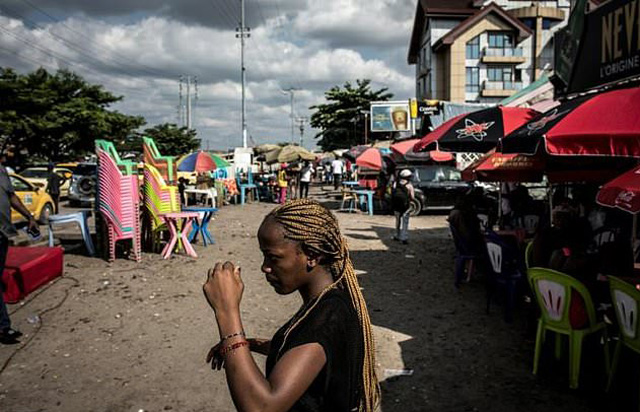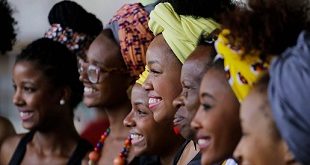
Kinshasa, DR Congo | AFP | The long, loud nights of Kinshasa’s street life are set to be shortened by the new governor of DR Congo’s unruly capital, as part of a city-wide crusade against “dirtiness”.
In less than a month, the bars spilling out on to the city’s highways and byways will no longer be allowed to serve customers with beer and meat skewers before 6:00 pm. Five hours later, the premises must close, Governor Gentiny Ngobila ordered last Thursday.
Customers on the packed terraces of working-class districts such as the Huilerie, Matonge and Bandal will benefit from an extension until midnight at weekends and on public holidays after the rules take effect on August 1.
Popular rumba music can still boom out, but sales of drinks must always cease an hour before closing time, according to authorities who believe that a “live and let live” attitude has gone too far in Africa’s third-largest metropolis.
The bid to cut down on noise and disorderly conduct is just one aspect of Ngobila’s “Kin Bopeto” — “Clean Kinshasa” — operation, which also targets alleged prostitutes and delinquents.
“Sometimes you find somebody having a beer at 10 o’clock in the morning. What state will they be in by midday?” protested the provincial minister of the environment, Didier Tenge Litho.
He has exhumed “the ordinance-law of May 31, 1975, which regulates the opening and closing hours of places serving (alcoholic) drinks”.
Speaking on several radio stations to spread the word, Tenge Litho said that the Kin Bopeto campaign is intended to provoke a general “change in outlook and behaviour” to “reject filth”.
Nobody knows for sure how many people live in the sprawling capital of the Democratic Republic of Congo. There has been no census since 1984, but a broad consensus estimate puts the population at 10 million.
– ‘Cleansing brigades’ –
The city inherited from Belgian colonial rule was often called “Kin-la-belle” (“Kin-the-beautiful”), but for many nowadays it’s become “Kin-la-poubelle” (Kin-the-trash-bin”) — where countless plastic bags are strewn the length of “avenues” of beaten earth and clog up the waterways.
The new governor has announced resources to obtain visible results from the Kin Bopeto initiative within six months. Each of Kinshasa’s 24 administrative departments will get financial help, while “cleansing brigades” of at least 40 agents will serve each district.
The campaign also targets behaviour seen as immoral and socially unacceptable, but the authorities have set their sights on traditional scapegoats. The “shegue” and “kuluna” street kids and juvenile delinquents get the blame for insecurity, while “ujana” alleged teen prostitutes are rounded up.
Innocent girls are sometimes — indeed often — accused of being loose women simply because they don’t wear bras.
City officials even plan to enforce distance among the informal traders who gather along congested main roads. These people must stand back at least a metre (yard) from the highway to avoid anyone falling sick because of filth.
What will become of Kinshasa six months into the governor’s plan remains to be seen, but one thing is already certain. It will affect the majority of the workforce that ekes out a precarious living in informal jobs, including petty roadside trade and serving beer.
 The Independent Uganda: You get the Truth we Pay the Price
The Independent Uganda: You get the Truth we Pay the Price



